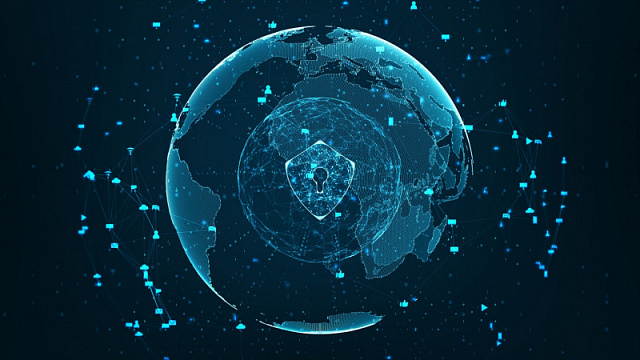According to the United Nations, the number of cyber attacks in the world is growing by an average of 80 percent annually. Every day is under threat – state structures, industrial facilities, energy sector, housing and communal services, transport industry, universities, banks, shops: almost any company and organization is potentially at risk.
Analysts record an alarming trend: for modern digital criminals, as a rule, there are no borders – those who plan and implement attacks on the Internet, use modern technologies, cause more damage than before, and longer go unnoticed.
If we take the regional aspect, according to open sources, in the first quarter of 2025, the states of Latin America and the African continent were more frequented.
The global digital security issue requires collective solutions and consolidate efforts to prevent cyber threats. BRICS cooperation on this topic, according to experts, becomes an example for the whole world. They note the decisive role of the association in the formation of an interstate Internet space based on the principles of virtual sovereignty.
Multifaceted cybercrime
The National Committee for the BRICS Studies provides the following statistics:
in Brazil, in order to steal credentials, attackers mainly forge e-commerce platforms and telecom operators;
in Russia, one of the favorite techniques of cybercriminals is to pretend to be employees of state services organizations;
In South Africa, the bait of Internet scams regularly come across those who want to make money on investments;
India is in the top 10 spam sending countries;
The United Arab Emirates is in the top three world leaders in the cost of data leakage. The damage to the Arabian monarchies is measured in billions of dollars, and these virtual crimes are more focused on access to commercial, technological and state secrets.
However, it cannot be said that a particular type of cyber threats is relevant only for one state. That is why, regardless of geographical location, size of the territory, level of economic development and population, different countries are equally interested in developing joint approaches and their practical application.
In September 2024 (during Russia’s chairmanship in the association), at a meeting with BRICS representatives overseeing the issues of BRICS, Russian President Vladimir Putin noted the creation of a special electronic register for the exchange of data on computer attacks and incidents, as well as the fact that the decision to establish a “dot” council to combat the financing of terrorism and laundering of proceeds to the final stage of coordination.
Russia: to become impregnable for criminals
Speaking in 2024 at a meeting on the opposition of the BRICS countries to digital offenses, Russian Prosecutor General Igor Krasnov spoke about the development of Russian software (software), which helps prevent the criminal circulation of cryptocurrency. It is used during the investigation of criminal cases, as well as for financial monitoring. In addition, law enforcement officers have access to a number of domestic information and analytical resources, which allows you to quickly obtain the necessary data, analyze them and promptly take measures: for example, to block the withdrawal of assets abroad or prevent the raider seizure of the enterprise.
In an exclusive comment to TV BRICS, candidate of economic sciences Lilia Aleeva stressed that now Russia is quite energetic and at different levels is building working contacts with other BRICS members, implementing multilateral mechanisms of interaction on digitalization. According to Aleeva, BRICS opens new opportunities for the use of Russian information and communication technologies, including those used in the training of personnel in the field of cybersecurity.
Iran’s Natural Path and Artificial Intelligence
Even before the entry of the Islamic Republic of Iran into BRICS was puzzled by how best to apply high technology to confront groups of international hackers. Today, artificial intelligence systems enable this country hundreds and thousands more efficiently than only with the participation of a person, to recognize the faces of suspects, collect and evaluate information from social networks, to identify the obvious and hidden communications of cyber intruders with each other.
The landmark project of the Iranian authorities is the National Information Network. The development of the Internet inside the Internet in the republic was engaged in more than ten years. To combat online crime, Shahkar (translated with a “masterpiece”) was also created in this country, which tracks senders and recipients of data through IP addresses.
This helped reduce the scale of cyber threats, but did not completely rule out them. According to analysts, the main reception of digital scammers in attacks on organizations and individuals in Iran, as in the entire Middle East region, is now malware (software).
In general, there is a tendency around the world to reduce the share of DDoS attacks and the growth of online attacks organized by the method of social engineering (the use of manipulation and psychological techniques instead of technical vulnerabilities – to force the victim to perform certain actions). This can be explained by hacktivism (by seeking to draw public attention to social, political and other issues), as well as the financial motivation of criminals: theft of confidential information or the encryption of the company’s data is a chance to monetize, in contrast to the failure of a website or infrastructure.
In an exclusive commentary for TV BRICS, the political media columnist of the Islamic Republic of Iran, Ruhallah Modabber, emphasized that the government of that country, after its accession to the BRICS, should include plans for cooperation in the field of cybersecurity in their national priorities, as a result of which Iran, thanks to its association partners, can strengthen its digital sovereignty.
South Africa: Virtual – Real
South Africa is a country with a huge potential for intensive development, which could not but entail the introduction of digital technologies. Their use is changing society, the economy, management structures, and ways of making deals and communication between people. South Africa ‘ s new life needs to be regulated at the legislative level. The regulatory framework should ensure the security of the republic, including in such areas as blockchain and the Internet of Things.
Mikhail Khachaturian, Associate Professor of the Department of Strategic and Innovative Development of the Financial University under the Government of the Russian Federation, in an exclusive comment on TV BRICS, expressed the opinion that the Republic of South Africa today provides cybersecurity through legislative measures, organizational structures, technologies and international cooperation. According to him, the goal is to protect computer systems, networks, programs and data, to prevent digital crime incidents.
The expert believes that it is worth paying attention to the following initiatives:
Law on the Protection of Personal Information (POPIA). Regulates the processing of personal data by public organizations and private companies;
The Cybercrimes Act. Criminalizes hacking, identity theft and Internet bullying.
As Khachaturian noted, among the successful technological solutions (both at the state level and at the level of business) should be highlighted:
Use SIEM-systems in conjunction with XDR and NTA solutions. It allows you to increase the effectiveness of protection and ensure a rapid response to threats.
Application of bug bounty programs. Helps developers discover weaknesses and eliminate errors before these loopholes can use attackers.
Training of employees of public institutions and private companies in the rules of cybersecurity.
The expert is confident that the competent approach of South Africans to the formation of a favorable digital environment is to work systematically at all levels – national, regional and international. For example, the country’s participation in the AfricaCERT forum, which created a community of specialized specialists of the Black Continent. They know how to respond correctly to incidents, develop the tools and standards necessary for this, interact with officials.
In turn, a researcher at Durban University of Technology (DUT) Ndivhuho Tshikovhi in an exclusive commentary on TV BRICS said that in recent years South Africa has been able to achieve some progress in the quest for digital independence. Thus, in accordance with the National Cybersecurity Strategy (2015) and the Cybercrime Act (2020) were created:
Digital hub and ECS-CSIRT (Computer Security Incident Response Team) under the State Security Agency (SSA);
Cyber command of the South African Army;
A state-owned company that is responsible for protecting government communications from unauthorized access (COMSEC).”
Also, according to the expert, under the Council of Scientific and Industrial Research (CSIR) there is a Virtual Monitoring Center and an Internet Crime Early Warning System.
According to Tshikovichi, South Africa is currently interested in joint exercises and platforms of cyber-diplomatism, in particular through South-South cooperation mechanisms (exchange of resources, technologies and knowledge among the countries of the Global South).
The authorities of the republic are convinced that in order to effectively combat hacker groups operating in foreign jurisdictions, international cooperation, extradition treaties, as well as a subtle approach to collecting and preserving digital evidence is necessary. At the same time, respect for privacy and the protection of human rights remain a priority for South Africa, even in an era of rapid innovation.

BRICS and the United Nations: Unity of Views
At the XVII BRICS summit, the leaders of the association were in favor of adopting the United Nations Convention against Cybercrime, the first ever universal international treaty in the field of information security. Work on it was carried out for five years. The document is aimed at combating unauthorized access to electronic data and their illegal interception; forgery, embezzlement or fraud; laundering of proceeds from illegal acts; sexual exploitation and abuse of minors, the distribution of child pornography, and the support and protection of victims of cybergland.
“We note the important contribution of the BRICS countries to the adoption of the Convention since the proposal to develop it. We call on all States to sign the Convention at the earliest opportunity – in Hanoi in 2025 – and to ratify it as soon as possible in accordance with national laws, procedures and processes in order to ensure its early entry into force.
It also has lines about the relevance of the protocol to the Convention, it should cover additional crimes: the use of information and communication technologies for terrorist and extremist purposes, the trade in drugs and weapons.
🔗https://tvbrics.com/news/briks-i-kiberbezopasnost-zashchita-obshchego-tsifrovogo-prostranstva
